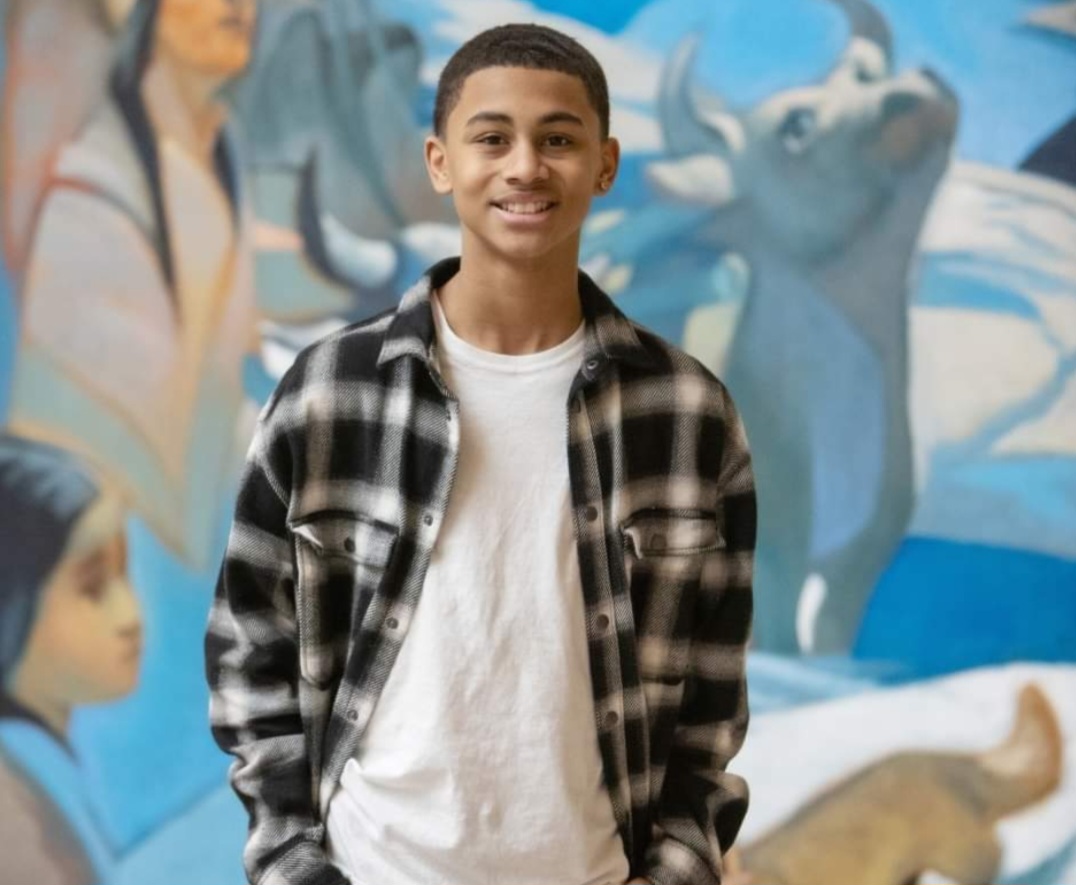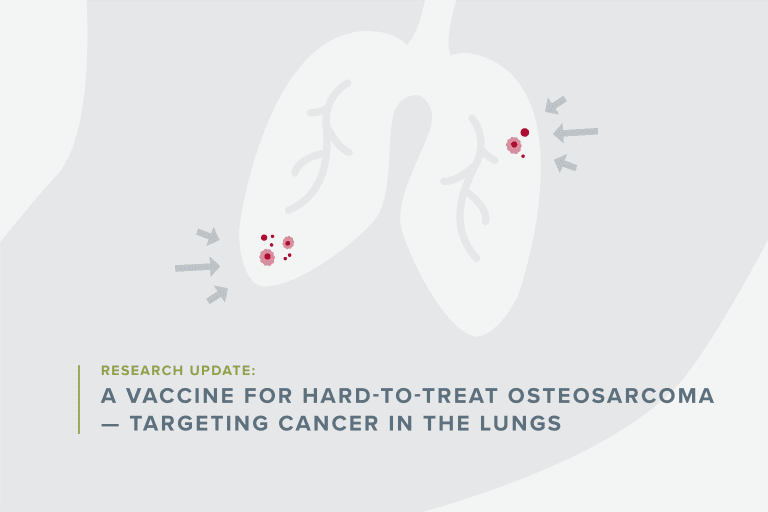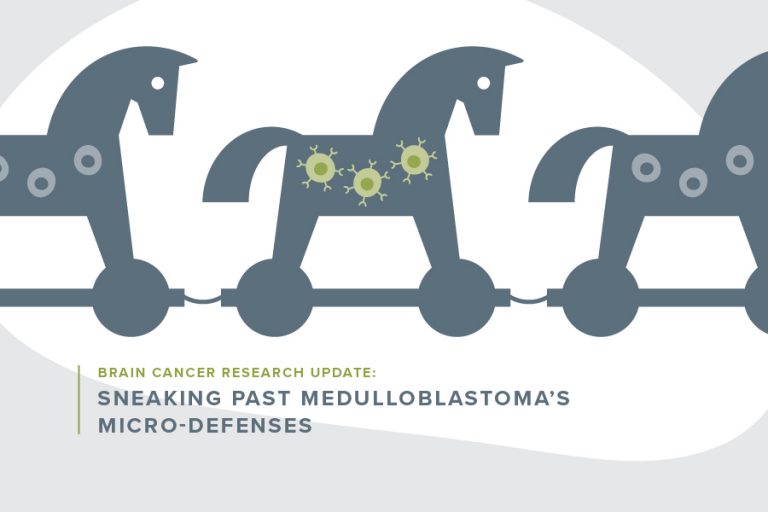Rider is an athlete – he loves sports, especially football, so bumps and bruises here and there are nothing new. But when he noticed a bruise on his back from a minor fall during gym class was a lot bigger than he expected, and wasn’t going away, Rider got a little worried.
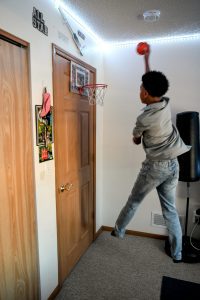
Rider dunks a basketball in his room
His mom, Jen noticed as well – and when her usually energetic 12-year-old son started falling asleep at the kitchen table doing homework, she decided it was time for a visit to Rider’s pediatrician. The pediatrician sent Rider and Jen to the emergency room at the University of Minnesota Masonic Children’s Hospital in Minneapolis, where an oncology team was prepared to break the terrible news – Rider had leukemia.
The first thing Rider asked his mom was if he was going to die.
“That’s the hardest thing to hear your child say,” Jen said. “No parent should have to hear that sentence.”
Rider had one of the hardest-to-treat forms of leukemia, acute myeloid leukemia. Treatment involved five rounds of chemotherapy, which can effectively kill cancer cells, but not without damaging nearly everything else in its path.
“I thought chemo helped you… and it does in the long run, but it hurts in the moment,” Rider said. “It’s so toxic that your hair falls out, your immune system shuts down, you’re throwing up and tired and hurting all the time… nobody takes drugs as bad as chemo.”
During his fifth round of chemotherapy, Rider’s health took a scary turn. Both of his lungs collapsed, and he ended up in the intensive care unit on a ventilator for 15 days, with dangerously low white blood cell counts. Rider said making it through that ICU stay, while traumatic, helped him realize how strong he really is.
“That’s when I knew I’d been through some real stuff and beat the odds of surviving,” he said. “I just beat one of the hardest diseases in the world. That’s when I started feeling myself a little bit.”
Cancer in a Pandemic
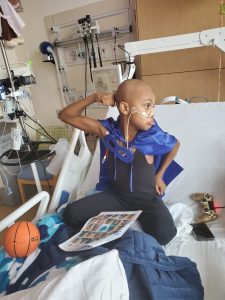
Rider during leukemia treatment
Rider’s chemotherapy treatments left him with close to no immune system, meaning extended hospital stays and no visitors except his mom. Isolated further by the global COVID-19 pandemic, Rider and his mom also witnessed the protests in Minneapolis that garnered the world’s attention after the killing of George Floyd. They could see some of the protests outside his hospital room window.
“Not only were we fighting cancer during a pandemic and had social justice issues in the city, but he’s stuck in a room at 12 years old,” Jen said. “He just wants to play sports and do what everyone else is doing, but other people weren’t doing those things either.”
This pain, seclusion and uncertainty seriously damaged Rider’s mental health. He realized that his time in the hospital meant he couldn’t enjoy his favorite activities like football, and the disruption brought by the pandemic made him question if he would be able to play when he got home.
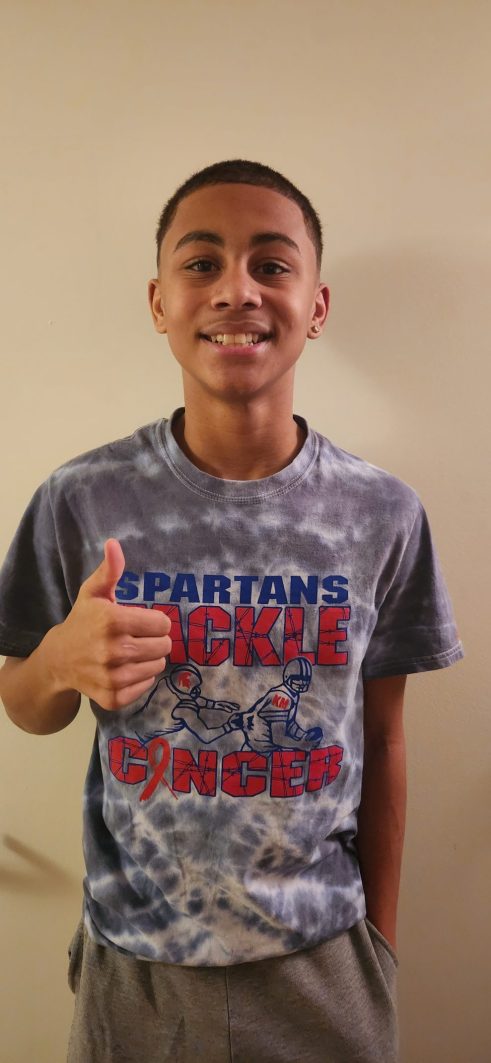
Rider at his birthday
Mentally Exhausted
Rider hadn’t had time to mentally process the trauma he’d been through during treatment, and when he came home, he felt the weight of everything full force. His mental health spiraled, and he confided in Jen that he had thoughts of ending his life.
“There were days when I just didn’t want to suffer,” he said.
Jen promptly arranged for Rider to receive additional care and counseling. A well-trained and compassionate therapist helped this young man work through his feelings to reach a stronger mental place.
“That’s how you know you’re a strong person,” he said. “You ask for help.”
Now at 17, Rider is looking forward to his future. He's reconnected with friends who supported him through treatment; he’s thriving in school, has a part-time job and earned his driver’s license. He’s also mentally and physically preparing for his senior year of high school – and his final season of football - with his sights set on trade school after graduation.
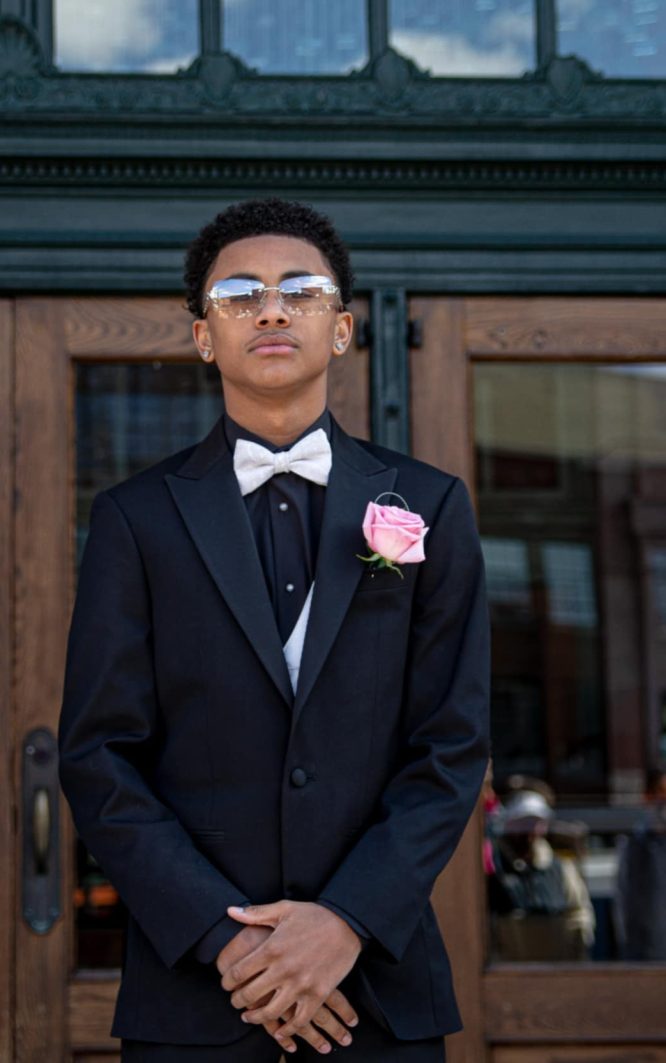
Rider posing for prom
Strength and Survival
Rider’s hope is that by sharing his story he can inspire people to step up and be a part of funding much-needed research that can make treatment easier for kids with cancer. He hopes his strength can show other kids that even in their darkest moments, they can get through it.
“Anything you put your mind to, you can do it,” he said. “I was scared I’d have to learn to walk again, but I did it. I started playing football again. I adapted to my surroundings and I got through it. People helped me, so I’m doing this so I can give back, and if I help one person, I’ll be happy.”
We can do more for kids like Rider.
Cancer treatments for kids like Rider often haven't improved in decades - but we believe we can do better by funding research. Your gift supports researchers searching for better, safer treatments for kids fighting cancer.

